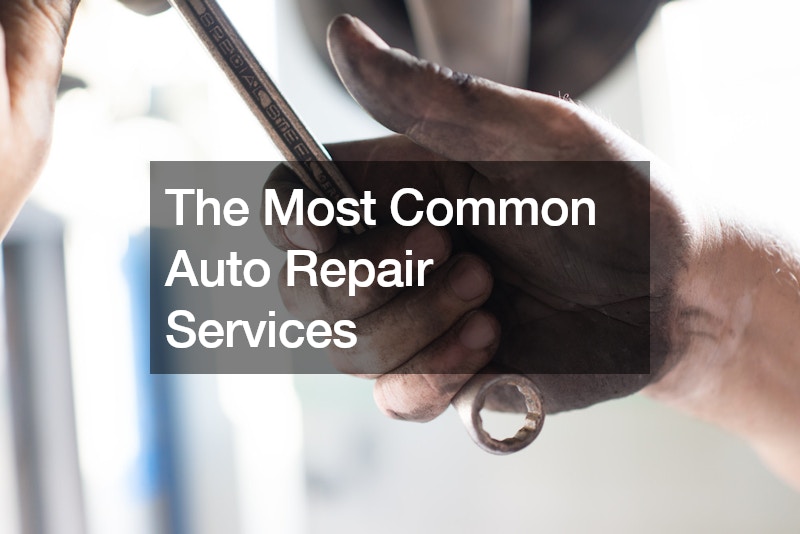
Precision and Performance Why European Automotive Repair Demands Expert Attention

When it comes to luxury and performance vehicles, European cars stand in a class of their own. Whether it’s the sleek engineering of a BMW, the timeless design of a Mercedes-Benz, or the precision of an Audi, these cars are admired around the world for their style, speed, and sophisticated technology. However, with all that performance and innovation comes the need for highly specialised service. That’s where European automotive repair becomes essential.
These vehicles are built to exact standards and demand an equally exact approach to maintenance and repair. Unlike domestic or Asian models, European cars often use unique parts, proprietary software, and advanced mechanical systems that require experienced technicians and tailored tools to handle properly.
For owners of European vehicles, finding the right repair shop can make all the difference in the longevity and performance of their car.
Understanding European Engineering
European vehicles are engineered differently. From turbocharged engines and performance exhausts to sophisticated electronic control units (ECUs) and high-end suspension systems, these cars are made with precision in mind. This complexity is part of what makes them so enjoyable to drive, but it also means routine services like oil changes, brake replacements, or engine diagnostics require more than just standard knowledge.
Technicians who specialise in European automotive repair are trained to work with the latest diagnostic tools and understand brand-specific systems. They know how to interpret codes from BMW’s iDrive system, how Mercedes-Benz’s 4MATIC all-wheel drive behaves under pressure, and how to reset service intervals on a Porsche. These aren’t just generic services—they’re brand-specific processes that demand hands-on experience and technical know-how.
Why European Cars Need Specialised Repair
While all vehicles need maintenance, European cars are built with advanced systems that don’t always align with the equipment or experience of a general mechanic. For example, many European brands use different types of diagnostic interfaces and require regular software updates through manufacturer-specific platforms. Attempting to diagnose or repair issues without the proper tools can lead to misdiagnosis or further damage.
Additionally, components in European vehicles are often installed with tighter tolerances and require more precise calibration. From the intricate steering and suspension systems of a Jaguar to the direct injection systems of a Volkswagen, each component has been designed to deliver optimal performance. But that performance can only be preserved through expert-level service and repair.
Common European Vehicle Issues
Although known for reliability, European vehicles can experience unique problems—especially as they age. Understanding these common issues helps both owners and technicians spot warning signs early.
-
Electrical Problems
European cars are packed with advanced electronics—adaptive headlights, digital dashboards, lane assist, and more. Over time, electrical systems may show glitches or failures that need proper diagnosis. -
Oil Leaks
Brands like BMW and Audi are known to develop oil leaks, particularly around gaskets and valve covers. These issues may seem minor at first but can become severe without timely repair. -
Cooling System Failures
European engines tend to run hot, which means cooling systems work overtime. Radiators, water pumps, and thermostat housings often wear out and require close inspection. -
Transmission Issues
Automatics in brands like Mercedes-Benz or dual-clutch systems in Audi can be sensitive. Regular fluid changes and software checks help maintain smooth operation. -
Suspension Wear
The finely-tuned suspensions in European cars are great for driving comfort and control but are also prone to wear—especially bushings, control arms, and shocks.
Choosing the Right European Automotive Repair Shop
Not all auto repair shops are created equal. For European vehicle owners, choosing a shop that specialises in European automotive repair ensures your car is in the right hands. Look for shops that have:
-
Factory-trained technicians with experience in specific European brands
-
Access to OEM or high-quality aftermarket parts
-
Advanced diagnostic tools tailored for European models
-
A clean, organised workspace that reflects attention to detail
-
A track record of satisfied customers and solid reviews
Ask whether the shop follows manufacturer guidelines for service and repair. Many high-end European vehicles require specific fluids, torque specs, and software resets that aren’t standard.
Preventative Maintenance Is Key
One of the best ways to avoid costly and unexpected repairs is to follow a strict maintenance schedule. European vehicles often come with specific service intervals for oil, filters, spark plugs, brake fluid, and more. Sticking to this schedule can prevent small issues from turning into major repairs.
The Future of European Automotive Repair
As European brands move deeper into electric and hybrid technology, repair shops must evolve too. Vehicles like the BMW i series, Mercedes EQ models, and Audi e-tron bring a whole new set of challenges, from battery diagnostics to regenerative braking systems. The future of European automotive repair depends on ongoing training, investment in tools, and a dedication to staying ahead of automotive trends.
Owning a European vehicle is about more than just getting from point A to point B—it’s about enjoying the journey with comfort, precision, and style. But that enjoyment depends on keeping your car in optimal condition, which starts with choosing the right repair team.
Whether you’re driving a sleek Audi, a powerful BMW, or a luxurious Mercedes-Benz, entrusting your car to a shop that specialises in European automotive repair is the smartest move. From routine maintenance to advanced diagnostics, only a specialised technician can give your car the attention it deserves—preserving its performance and extending its life on the road.



